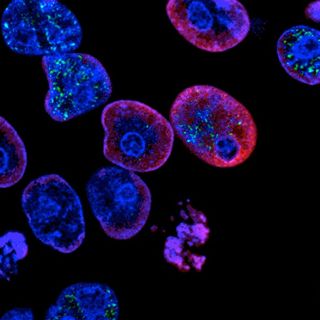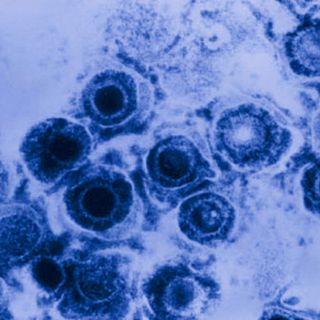If your child has a blocked or runny nose, it’s pretty common to turn to decongestants as a quick and easy way to cure cold symptoms. But experts warn against giving children under 12 decongestants: There is no evidence that these cold medicines alleviate cold symptoms in kids, while their side effects like drowsiness, insomnia, stomach upsets, or headaches, might actually make children feel worse.
The common cold is caused by viruses and the symptoms usually fade within seven to 10 days. But since children, on average, suffer from more colds than adults (six to eight a year, versus two to four in adults), their everyday lives and school are more likely to be interrupted. This is what prompted Professor Mieke van Driel and colleagues to analyze published evidence on treatments for the common cold.
Read: When To Take Antibiotics — And When Not To
While there is no cure for a cold, in adults, decongestants have been found to have a minor effect on cold symptoms. However, the long-term consequences of using this common medication can lead to chronic nasal congestion, which is difficult to treat.
Advising parents not to give decongestants, or medicines containing antihistamines, to children under 6, the authors also encourage caution in using children’s cold medicine between 6 and 12 years. “There is no evidence that these treatments alleviate nasal symptoms and they can cause adverse effects such as drowsiness or gastrointestinal (stomach) upset,” they state. Additionally, decongestants should not be given to toddlers; in children under 2 years, these medications have been linked to convulsions, rapid heart rate, and even death.
So, if decongestants aren’t really advisable, how do you treat a child’s cold? Unfortunately, the authors find, there’s not much you can do except to wait until the symptoms pass. Paracetamol and anti-inflammatory drugs may relieve pain, but they do nothing to get rid of the runny nose. Home remedies like steam inhalation, increased fluid intake, eucalyptus oil, and vapour rub haven’t been proven to be effective either.
“If parents are concerned about their child’s comfort, saline nasal irrigations or drops can be used safely, but this may not give the desired relief,” they write.
While ongoing research may help find an answer that alleviates cold symptoms in kids, the authors of this paper conclude, “Based on the currently available evidence, reassurance that symptoms are self-limiting is the best you can offer patients.”




